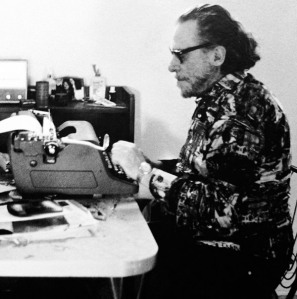Why bother?
Hell, as the adage goes, is all too often ‘other people’. In this case though not even the rogues’ gallery of Hunter S Thompson’s Kentucky Derby. No, these are altogether more sedate dysfunctions that still somehow manage to stick in the craw. There they are in the gradual social slide towards mawkishness, the ersatz emotion of flowers at every road crash site, Facebook RIPs for ‘fallen souljas’, the tear-jerking backstory of every contestant on X-Factor; above all in the social currency of competitive grief.
At times it can feel as though the whole country is in mourning, though for precisely what no one seems that sure. Perhaps it’s always been like this though: as far back as the ancient Greeks, Plato was troubled by how, as he saw it, the material world would only ever provide distorted images of true ideas. And then of course there’s Kant, lamenting that ‘if ethics without politics is empty, then politics without ethics is blind’.
So you try your luck elsewhere, remind yourself that it was a love affair with words, with individual letters even, that first brought you to the Academy’s door. And you suppress the nagging doubts that the real academe has already flowed through your veins at football, cricket, too, at the Oval, and maybe even at the actual Academy, which was always south of the river.
Putting away the ‘childish things’ of pop culture, or at least placing them in storage, has not really helped though, in that effusive search for meaning. Far too late, this, from Zizek: ‘What if we are looking for the Self in the wrong place, in the false evidence of positive empirical facts?’ Or the dismal circularity of Kierkegaard’s exhortation to ‘learn to speak without authority’. The sinking feeling, of course, is that to follow such logic leads right back to Kidbrooke in the early 70s, and to that child whose only recourse was precisely to ‘speak without authority’. Only now it’s four decades later and there’s still no authority, except that in the interim life has had its say and there’s precious little innocence left either.
So yeah, people are swine sometimes, but what are you going to do about it?
In the end the suspicion is that there’s only really one thing to do; one place to go. And whilst this might disgust a certain kind of dyed-in-the-wool, though more likely mohair, modernist, that place is back.
To the remnants, the shards of memory, for the painstaking task of drawing new lines linking experience and possibility.
It’s not nostalgia in a disparaging sense, but rather, as the historian, E.P.Thompson suggests: ‘It may just be worth placing trust in an openness to themes of yearning and loss’.
It is the instinct that seeks out ‘Frankie Knuckles Way’ in Chicago, whose only memorial today is a tiny sign next to a Pizza Parlour built on the site of where the legendary ‘Warehouse’ club once stood. Or goes looking for the spectral traces of the Lewisham Odeon and its glorious musical and cinematic past in the sorry parade of boarded up failure that has replaced it. But these aren’t purely physical journeys and there’s no exalted empirical truth at the end of them. Rather it is the shock at seeing neoliberalism percolate as far as the old Ferrier Estate in southeast London in its £1 billion redesignation as ‘Kidbrooke Village’. In this case, though, what’s jarring isn’t the physical makeover so much as the ease with which that area’s psychic debris has been airbrushed out of the picture.
Perhaps above all, though, this is the only logical response to having transported your Dad’s ashes back to the old country. Many of us have made that arduous trip, and it stays with you as few of our fathers had an easy relationship with the place. They were unsung heroes though, just lived it and found love, too, with what Hitchens might have described as ‘an untrained instinct for the examined life’. My feeling is that they were showing us how to live in the midst of tumbleweed and broken promises.
Also, that they’d have instinctively understood: ‘there is only one place to write and that is ALONE at a typewriter. A writer who has to go INTO the streets is a writer who does not know the streets. I have seen enough factories, whorehouses, jails, bars, park orators to last a hundred men a hundred lifetimes. To go into the streets when you have a name is to go the easy way.’
Bukowski, though it could just as easily have been any of our fathers, or countless pioneering stalwarts, some even pre-Windrush, who made the journey, made their lives anew, and in setting up organisations like the Indian Workers’ Association and in a thousand other guises, transformed not just Britain but what it meant to be here. What it meant to actually live. In spirit, then, if not always in substance, these are some of their stories too.


A fantastic zine! A welcome addition to the unwieldy resource that is the internet. Looking forward to the shards being pieced back together. Out of the ruins…
LikeLike
Great stuff! An intelligent, witty analysis of contemporary doom and a bold attempt to restore some sanity to our crumbling ruins. Well done guys.
jo
LikeLike